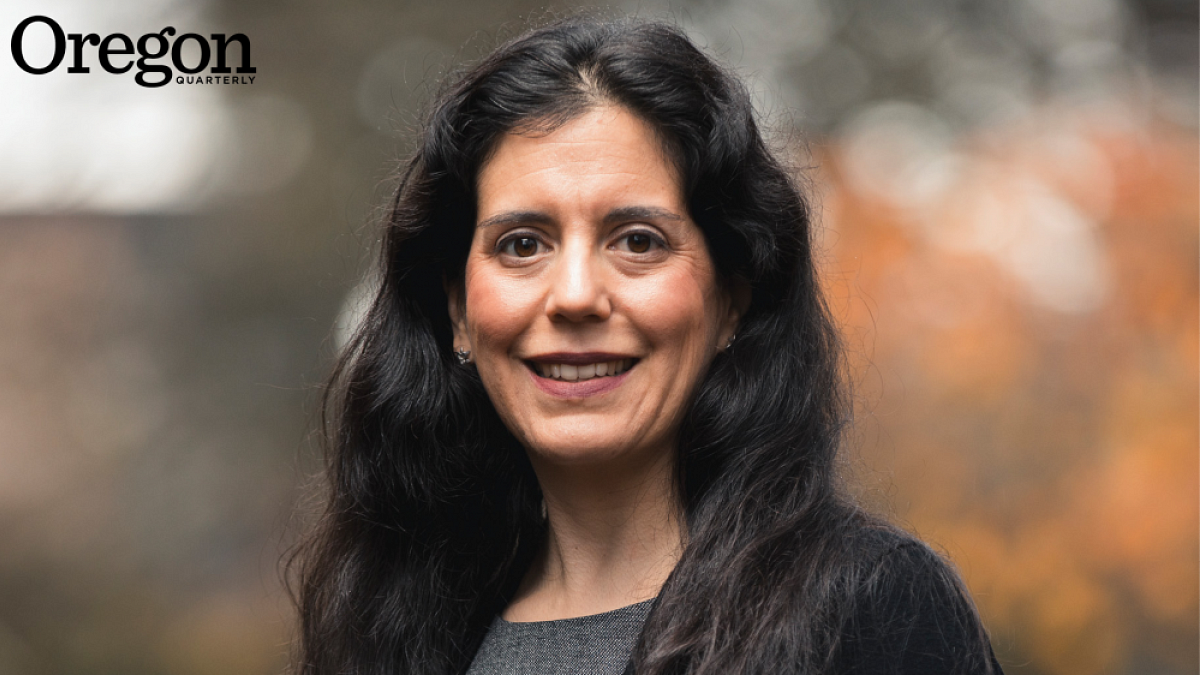AXIS OF DIFFERENCE
As an undergraduate at Princeton University, Jessica Vasquez-Tokos was singled out in class to give her position on Proposition 187, the controversial California ballot initiative that prohibited undocumented Latino immigrants from receiving health care and other services. She feels she was put on the spot because of her Spanish surname, dark hair, and California roots. “It made me realize the salience of race,” Vasquez-Tokos says. It also sparked in her a desire to study social inequality and to give voice to Mexican Americans and Latinos.
Vasquez-Tokos earned her PhD in 2007 from the University of California at Berkeley. Before joining the UO in 2012, she taught at the University of Kansas. Her first book, Mexican Americans Across Generations: Immigrant Families, Racial Realities, was listed as an “Annual Outstanding Academic Title” by Choice, a publication that celebrates the best in scholarly publishing.
Vasquez-Tokos researches and teaches the experience of Mexican Americans and Latinos as relates to race, ethnicity, gender, family, and intermarriage. Her third book—funded in part by her recent receipt of a UO Fund for Faculty Excellence award—will compare Latinos and non-Latinos and their perceptions about race and belonging in the US.
UNFINISHED BUSINESS
Many of her undergraduates wrongly assume that civil rights issues were settled in the 1960s, Vasquez-Tokos says. She illustrates the reality with a 10-question, in-class survey about interactions with police and other race-specific issues. The results are eye-opening, Vasquez-Tokos adds—“these are raw data coming from people sitting right around you, and the experiences of you and your neighbor are marked by race.”
BREAK THE COLOR BARRIER
As chair of the department’s new Diversity, Equity, and Representation Committee, Vasquez-Tokos will lead the effort to boost the consideration of marginalized groups in the curriculum and the classroom. The committee also supports the effort to recruit more faculty members and graduate students who identify as people of color, LGBTQ, first-generation college students, or members of the working class.
TROUBLING DISCOVERIES
Vasquez-Tokos’ work revolves around interviewing people, learning about their lives, and identifying patterns. But some of what she has encountered is beyond the scope of her focus, particularly when interviewing Latinas. “I was surprised by the degree of women confessing their experiences of sexual assault when I wasn’t asking directly about that,” she says. “It made me sad, but just confirmed the reality and prevalence of the problem.”
FROM CHILDHOOD TO THE ALTAR
In her second book, Marriage Vows and Racial Choices, Vasquez-Tokos explores the decisions of Latinos who marry either within or outside of their racial and ethnic groups. Drawing from in-depth interviews with nearly 50 couples, she examined marital choices and how these unions influence their identities as Americans. Vasquez-Tokos found that their experiences in childhood, adolescence, and young adulthood shaped their perceptions of race, which in turn influenced their romantic expectations.


